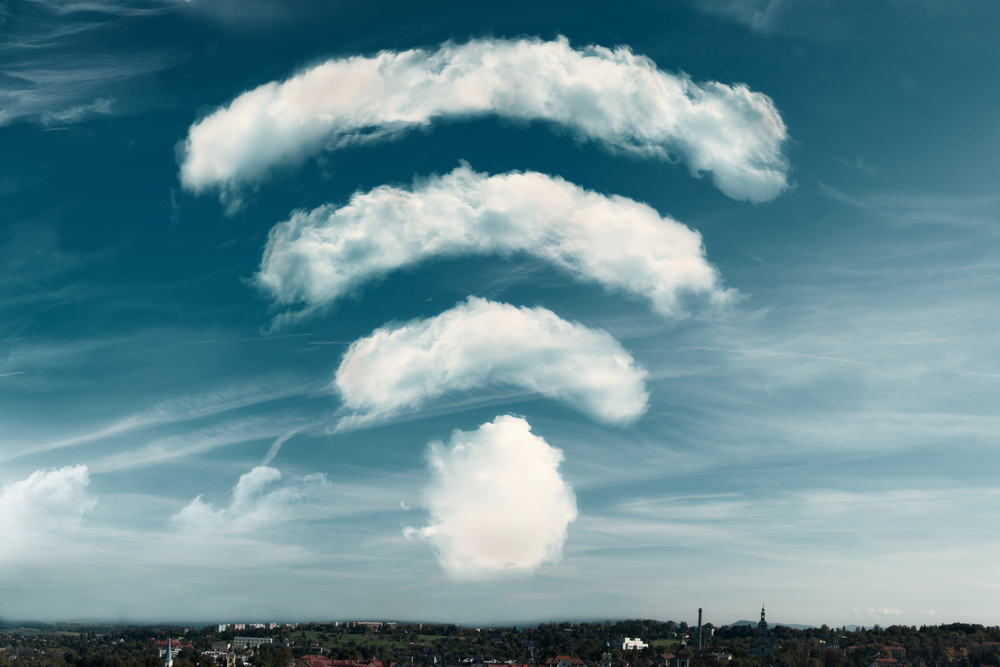Public Wi-Fi spots are available at many locations where people congregate and spend time, such as restaurants, hotels, train and bus stations, business lounges and even some outdoor areas like parks. Many of these provide unlimited access to the Internet for free, requiring only a portable device like a laptop, tablet or smartphone to use.
While public Wi-Fi access points are quite convenient for staying in touch with personal and business contacts, as well as helpful for getting work done, they do come with their share of security risks. Here is an overview of what you should know when using a public Wi-Fi connection and how you can stay safe while doing so.
Use a Virtual Private Network
Using a virtual private network (VPN) is the most convenient and popular way to increase one’s overall security while browsing the Internet on a public Wi-Fi connection. A VPN service creates a safe connection to a remote server for all of your Internet traffic. The data sent and received between your device and the server is encrypted in the process. This prevents the data from being seen or intercepted along the way. It also foils “man-in-the-middle” attacks in which a malicious user connected to the public Wi-Fi network can eavesdrop on the data being transmitted by other users.
There are many free VPN services that you can use on your portable device, regardless of which platform you’re running. Paid services are also available for the equivalent of a few dollars per month. Both types provide similar privacy and security benefits, but the paid services tend to be faster, more reliable and can come with additional features that some users may find interesting, such as the ability to use an IP address from another country to unblock websites or content that may not be available locally.
Keep Your Security Software Updated
There are plenty of security suites available today which combine the features of a firewall, antivirus and anti-malware. Security software is available for all desktop and mobile platforms. Some of these programs are even completely free, so you can simply download and install them to your device instantly.
To stay safe while connected to a public Wi-Fi network, ensure that your device has security software running at all times. You should also keep the software updated, as this is what lets it protect you from the latest threats. While it may not protect you from all possible types of attacks, it will catch the majority of suspicious or unauthorized activity.
Think About Password Safety
When you are connected to public Wi-Fi, you should be cautious with logging into accounts. Even if you’ve taken all the necessary security measures, you can never be too careful. Stolen login credentials can lead to serious issues such as identity theft, so it’s very important to prevent that from happening.
This risk increases if you use the same password for every account, so the first step is using a unique password for every account. This helps prevent an attacker who knows just your email address or a username you commonly use from accessing all of your other accounts if your password is compromised.
If keeping track of all of your different passwords is challenging, you should consider using a password manager tool. It’s an app that lets you save your passwords on your device in a secure and encrypted manner, requiring just a master password to access them.
Enabling two-factor authentication whenever it’s supported by a website you use is an additional layer of security. It works by sending out a unique authentication code by email or text after you sign in with your username and password. You then enter the code on the website to complete the login process, providing you with extra protection.
Always use HTTPS
Regular websites send and receive information in plain text without any encryption. This is fine if you’re just casually browsing the web, reading news articles or watching online videos. However, it also allows any hacker to see the data being exchanged between your device and remote websites.
In order to increase security, many websites, such as online banking services, social networks and cloud-based storage services, use HTTPS to encrypt your login credentials like your user name and password. Some websites also use HTTPS all the time to encrypt all the data exchanged between its servers and its users.
For added security, you can download a browser extension called HTTPS Everywhere. The extension is available for the Chrome, Opera and Firefox web browsers. It automatically requires supported websites to use a secure HTTPS connection at all times, which helps prevent many kinds of attacks that could result in the interception of information.
Don’t Forget to Turn Wi-Fi Off
Finally, you should avoid having your devices automatically connect to every open Wi-Fi network in range. If you don’t need to use the Internet on a device at the moment, don’t connect it to a public Wi-Fi network.
When you’ve finished working online, be sure to disconnect from the network. For added security, you can also disable file sharing on Windows as well as the AirDrop functionality on Apple devices.
Final Thoughts
Public Wi-Fi hotspots are provided in a growing number of places. Even though they’re a convenient way to get some work done while away from the office, they do come with a variety of potential security risks. By being aware of the security issues inherent in using public Wi-Fi networks, you can take steps to mitigate the threats to your devices and private information.
About the Author
Lisa Michaels is a freelance writer, editor and a striving content marketing consultant from Portland. Being self-employed, she does her best to stay on top of the current trends in the business world. Feel free to connect with her on Twitter @LisaBMichaels.

